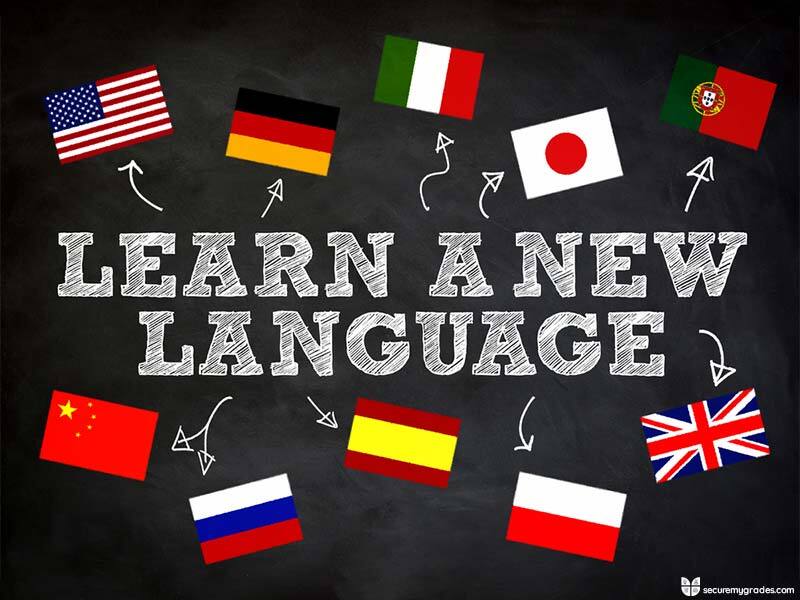
Many aspects of our life require us to develop certain skills to be prepared and face the real world. In this sense, learning a new language is vital to be competent in many aspects of our lives.
We recently published an article on the differences between CELPIP and IELTS; Today, we bring you some tips that, according to the experts, can make learning any language faster and easier.
Although many people think that the little ones learn languages more easily, the truth is that children and adults have the same possibilities of achieving it. So why not give it a try and read on.
When we talk, it puts everything learned into practice. An hour of conversation (with people who speak the language you are learning) is enough to learn the same as 5 hours taking classes or 10 hours on your own. It is because talking is a complex process that involves listening to the other person who is speaking, understanding what they are saying, planning the response in your mind and then expressing it orally. Remember that language is something that needs to be processed, not memorized.
As we mentioned earlier, language is processed in our minds every moment we think of a new idea, remember a moment in our life or plan things that we have to do in the future. This is generally done in our mother tongue; But why not force our brain to think in English (or the language of your choice). Forming sentences in another language and designing responses to different situations will help us prepare when they arrive.
The worst thing you can do is use the language only within the four walls of the school where you learn it. You must include it in your day to day, in activities that amuse you. So watch your favorite series in that language with the original audio, listen to music in the language you want to learn. The advantage of series or movies is that you will watch something entertaining while getting used to your ear and observing how the different sentences are written.
Without a doubt, songs, series, or movies help accelerate learning and understanding because they familiarize you with pronunciations, accents and the speed with which they are communicated.
In each language, there are perhaps 50 to 100 basic words. These 100 most common words equal 50% of the spoken communication a person uses on a daily basis. Under this condition, it is possible to achieve a gradual and truly significant advance to learn a new language. It is enough to start with the most obvious and gradually move towards the complex. But remember, consistency is something fundamental that you must take into account.
No matter how hard we try, it is a fact that learning all the words used in another language is not easy. So, to help you a little, try to have a dictionary on hand for each time you hear or read a word that you do not know. It is not necessary to carry a bulky book in your day-to-day. Today the wonder of smartphones can make you have everything you need with a single touch.
Practice makes a master. But, in order not to make your learning a boring and tedious process, use every opportunity you get to introduce the new language to your daily life. For example, you can watch more movies with subtitles, listen to music, search for song lyrics, read news in another language, and listen to podcasts or audiobooks. There are even those who say that a very effective method is to label all the objects that are in your house with their respective names in the language you are learning. This will help you learn a lot of vocabulary.
A super simple trick is to change the language of your mobile phone and your computer to the language you want to learn. In this way, every time you use them —and we do use them quite a bit— you will be practicing and learning. You can also install some dictionary applications, pronunciation applications, or some services to learn languages that we mentioned at the beginning. To make learning more fun, they also have mobile applications that use gamification.
Interacting in a real way with the language is very important, especially when you do it with other native speakers of the language because from them you can also learn to correctly express your thoughts and some everyday expressions that are never learned well with dictionaries; and the proper pronunciation for each word or expression. In addition to making new friends, both of you can benefit from teaching or learning a different language.
Many people learn to use a language by speaking and practicing it with a partner. When the partner competes with each other and tries to speak better, it becomes a game to play with words of a foreign language and the language learning in such a setting is streamlined.
It is great if that partner is a brother, sister or a family member. Still, even if you do not have any family members to accompany you on your adventure to learn languages, you can find someone in friends or lookout for people online who need a partner just like you.
It is a great idea as the end motive of any language is to communicate, and what better way to learn a language than to talk and communicate in that language!
Children have a lot of qualities, and when we grow up, we lose some of them. For example, children learn new languages quickly because they are not afraid of being ridiculed, what others think, or wrong. This lack of shyness is vital to gaining confidence and functioning in a new language. So you know, act like a kid.